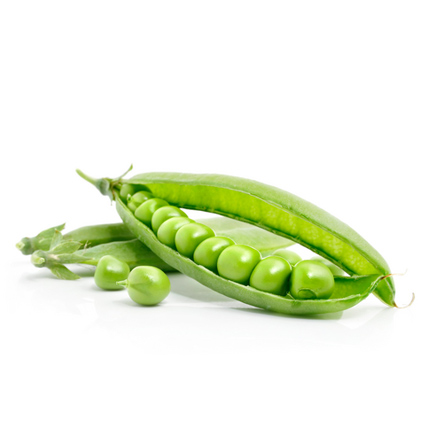Pea
Pea
A pea is most commonly the small spherical seed or the seed-pod of the legume Pisum sativum. Each pod contains several peas. Although it is botanically a fruit, it is treated as a vegetable in cooking. The name is also used to describe other edible seeds from the Fabaceae such as the pigeon pea (Cajanus cajan), the cowpea (Vigna unguiculata), and the seeds from several species of Lathyrus.
P. sativum is an annual plant, with a life cycle of one year. It is a cool season crop grown in many parts of the world; planting can take place from winter through to early summer depending on location. The average pea weighs between 0.1 and 0.36 grams. The species is used as a vegetable - fresh, frozen or canned, and is also grown to produce dry peas like the split pea. These varieties are typically called field peas.
The wild pea is restricted to the Mediterranean basin and the Near East. The earliest archaeological finds of peas come from Neolithic Syria, Turkey and Jordan. In Egypt, early finds come from c. 4800–4400 BC in the delta area, and from c. 3800–3600 BC in Upper Egypt. The pea was also present in 5th millennium BC Georgia. Further east, the finds are younger. Pea remains were retrieved from Afghanistan c. 2000 BC. They were present in 2250–1750 BC Harappa Pakistan and north-west India, from the older phases of this culture onward. In the second half of the 2nd millennium BC this pulse crop appears in the Gangetic basin and southern India.
